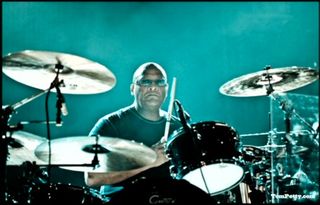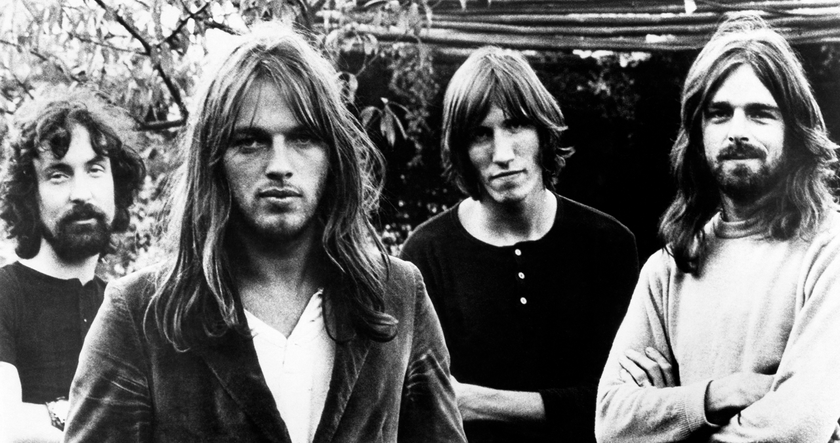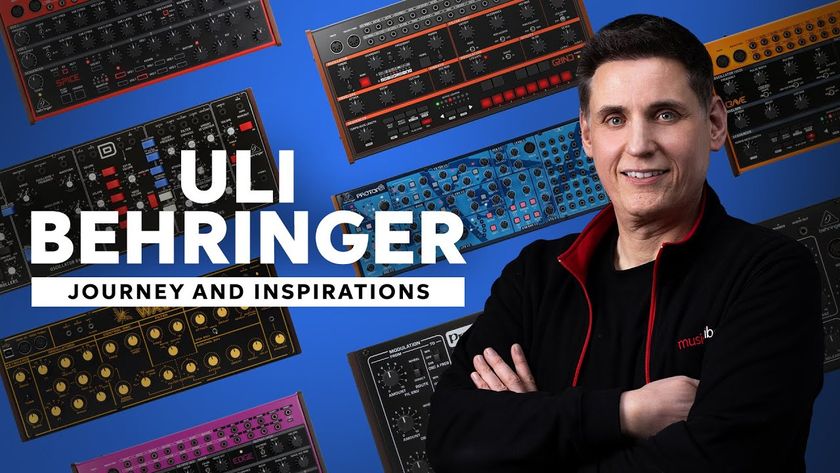Session Drumming Month: Steve Ferrone
Tips from a session icon


As one of the UK's biggest session stars, Steve Ferrone has share the stage with everyone from Slash to Chaka Khan. As part of our Session Month we got the lowdown on session life from the well-travelled sticksman.
What are the essential items of gear you take to any session?
"Sticks, brushes, mallets and a good attitude."
Do you have any tips for developing yourself as a studio drummer?
"Listen to try and find out what the producer is looking for. If he doesn't know, listen to the song and see what it needs."
"I get to hang out with creative people, in beautiful cities, eat wonderful food, with beautiful women around and earn a great living."
Any tips on managing your finances as a freelance drummer?
"HA!HA!HA!HA!HA!"
Get the MusicRadar Newsletter
Want all the hottest music and gear news, reviews, deals, features and more, direct to your inbox? Sign up here.
How much interaction do you have with the artist you're working with?
"A lot on a professional level. Looking to make the track comfortable for them involves getting inside how they are hearing a performance."
How glamorous is the life of a session drummer?
"I enjoy it immensely. I get to hang out with creative people, in beautiful cities, eat wonderful food, with beautiful women around and earn a great living. The work bit is work, but I love my job. It's very fulfilling."
How important is personality in getting, and getting asked back to, sessions? And where does it rank alongside ability in terms of importance?
"People have to like working with you. You can't really change your personality to fit everyone's taste, but you can work on your attitude in general. Not taking things personally if someone doesn't like an approach to a song is a good idea."
How much practice do you put in ahead of a session?
"None, I like to be surprised."
"Sometimes a change of ride cymbal or snare can make a world of difference to how something feels. I think gear knowledge will help if you have a good idea of what a certain drum or cymbal can give you."
Is it important to keep working on different styles and techniques to remain versatile?
"I would say so. Listening to music, and trying new things is still fun for me. Practicing alone however is not my idea of a thing to do for kicks."
What kind of artistic freedom can a drummer being calledinto a session expect? Can a lack of freedom ever becomefrustrating?
"Well, I usually get called because people have heard other music I have played on, and are looking for my feel. As I said before, once you find out what they are looking for you can have fun with it. If lack of freedom means "playing something that someone else wants", that is why I am being hired. If I want to play something ONLY the way I want to play it I do my own album. And even then, I might not like it and do it over."
How much gear knowledge is needed? In terms of being able to know the right gear and sound for particular tracks/artists andbeing able to get that sound quickly in the studio.
"I think I have a pretty good idea for how to make a drum sound the way I want it to. Sometimes the producer has other ideas on how a track should sound. It doesn't hurt to suggest something different sonically if what you have bothers you. Sometimes a change of ride cymbal or snare can make a world of difference to how something feels. I think gear knowledge will help if you have a good idea of what a certain drum or cymbal can give you. Working closely with the engineer helps."
For more session hints, tips and secrets pick up the latest issue of Rhythm and check out our online Session Month.
Rich is a teacher, one time Rhythm staff writer and experienced freelance journalist who has interviewed countless revered musicians, engineers, producers and stars for the our world-leading music making portfolio, including such titles as Rhythm, Total Guitar, Guitarist, Guitar World, and MusicRadar. His victims include such luminaries as Ice T, Mark Guilani and Jamie Oliver (the drumming one).

“I’m sorry I ruined your song!”: Mike Portnoy hears Taylor Swift's Shake It Off for the first time and plays along... with surprising results

“Nile's riff on Get Lucky is a classic example of a funk riff, where the second of each 16th-note duplet is slightly delayed”: Locking down the theory of groove




![Chris Hayes [left] wears a purple checked shirt and plays his 1957 Stratocaster in the studio; Michael J. Fox tears it up onstage as Marty McFly in the 1985 blockbuster Back To The Future.](https://cdn.mos.cms.futurecdn.net/nWZUSbFAwA6EqQdruLmXXh-840-80.jpg)






